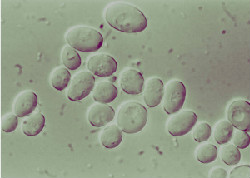
Breast cancer is still the leading cause of death for women who suffer from cancer, but early detection can improve the chances of successful treatment. In 2016 a group of researchers identified a molecular marker that can indicate a woman’s risk for developing the disease.
Identifying a Common Thread
The study was conducted by a joint team from Harvard Stem Cell Institute (HSCI), Dana-Farber Cancer Institute (DFCI), and Brigham and Women’s Hospital (BWH). Researchers reviewed biopsies from 302 women who had been diagnosed with benign breast disease. Some of the biopsies dated back to 40 years ago.
Out of this group, 69 women later developed cancer and 233 did not. It was discovered that women with a higher percentage of a particular marker were more likely to develop cancer.
Ki67 is a molecular marker found in the lining of the mammary ducts and milk-producing lobules that identifies proliferating cells. These tissues are the site where most breast cancers develop.
The Present and Future of Ki67 Testing
While Ki67 testing is already being used to determine courses of treatment, this discovery will allow doctors to test precancerous tissue for use as a predictive tool. The method could help avoid some of the drawbacks of mammograms, which are currently the best option for early detection.
Immunotherapy for Cancer: A Personalized Method of Treatment
Genomic testing is just one of the specialized tools we use to create our individually tailored therapies targeted to meet your personal needs. Contact us to learn why Issels® is the leader in non-toxic and effective immunotherapy for cancer.
